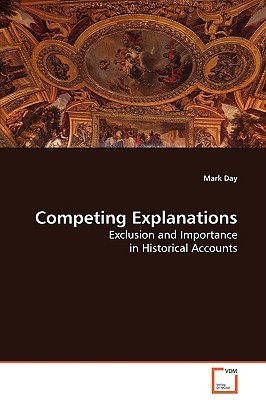
- We will send in 10–14 business days.
- Author: Mark Day
- Publisher: VDM Verlag
- ISBN-10: 3639131894
- ISBN-13: 9783639131895
- Format: 15.2 x 22.9 x 1.6 cm, minkšti viršeliai
- Language: English
- SAVE -10% with code: EXTRA
Reviews
Description
In this book, Mark Day undertakes a philosophical examination of the nature of explanatory competition between historical accounts. It is usual for a philosophy of explanation to attempt an analysis of explanation, singular. The focus of this work is on relations between two or more explanations. The methodology of Day's work is built upon a conception of descriptive philosophy: such that when attempting to philosophise about a practice such as history, we should pay detailed attention to existing good practice. To this end, Day's conclusions are developed in conjunction with an examination of eight differing explanations of the French Revolution. Day argues for, and analyses, two major types of relation between historical accounts: relations of exclusion, and of competition. In examining the nature of explanatory competition, Day develops a realist account of the nature of historical importance.
EXTRA 10 % discount with code: EXTRA
The promotion ends in 23d.10:24:09
The discount code is valid when purchasing from 10 €. Discounts do not stack.
- Author: Mark Day
- Publisher: VDM Verlag
- ISBN-10: 3639131894
- ISBN-13: 9783639131895
- Format: 15.2 x 22.9 x 1.6 cm, minkšti viršeliai
- Language: English English
In this book, Mark Day undertakes a philosophical examination of the nature of explanatory competition between historical accounts. It is usual for a philosophy of explanation to attempt an analysis of explanation, singular. The focus of this work is on relations between two or more explanations. The methodology of Day's work is built upon a conception of descriptive philosophy: such that when attempting to philosophise about a practice such as history, we should pay detailed attention to existing good practice. To this end, Day's conclusions are developed in conjunction with an examination of eight differing explanations of the French Revolution. Day argues for, and analyses, two major types of relation between historical accounts: relations of exclusion, and of competition. In examining the nature of explanatory competition, Day develops a realist account of the nature of historical importance.


Reviews